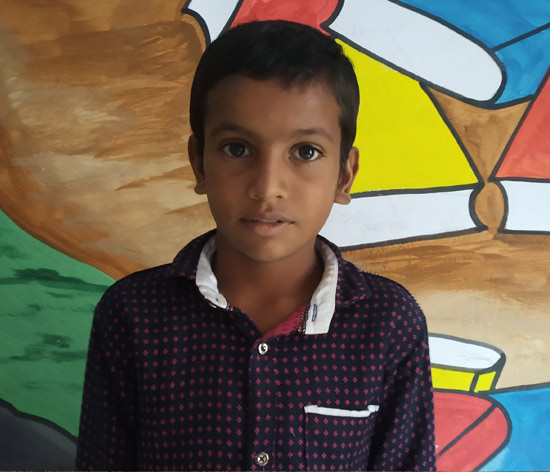
“I miss my school library,” says Sanjay Gawariya, a class 5 student from Katai Bunai Beda, Pali district, Rajasthan. “So, I read stories from the books which are provided by our library teacher at home.” Sanjay is only one of the many students who are keeping up with their reading even during the pandemic time, thanks to the Centre for microFinance (CmF), an associate organisation of the Tata Trusts that implements the Parag library programme in the state.
When schools closed in March 2020 owing to the pandemic, children lost opportunity to attend school, play together, read books, etc. Online learning limits the inter-activeness of a regular classroom. Moreover, children from remote locations have difficulty accessing online resources due to various reasons around the digital divide, such as availability of devices, internet connections, etc.
Nowhere was the problem quite so stark as in the Bali Block of Pali district. With more than 40 per cent of the population belonging to Scheduled Castes (SC) and Scheduled Tribes (ST), Bali is one of the most challenging area in terms of children’s literacy levels. Children attending school often lack age- and grade-appropriate reading and writing skills.
The Parag library programme has ensured that children in Bali have access to literature and stories through small book collections in villages. In fact, Parag and CmF teams support 50 school libraries in the Bali block alone.
CmF has been implementing social development initiatives in the remote, socially and economically underprivileged areas of Sirohi, Pali and Karauli districts for more than a decade. As this, unprecedented learning crisis unfolded, Parag and CmF looked for ways to engage children across the state in meaningful activities and to support a healthy environment for learning.
“We decided to take the library to the children,” says Kailash Kumar, Headmaster of Rajkiya Prathamik Vidyalaya, Digaa Pipla, Pali. Through the Children’s Library Management Committees, which are an essential part of Parag libraries, teams went from village to village distributing books. “Initially, we issued 10-12 books. Committee members distributed books to friends on their street and in their neighbourhood. Later, we handed out 25 books,” adds Mr Kumar.
Initially, parents were concerned about the spread of coronavirus due to touching and sharing of books. But the children were given instructions about physical distancing, sanitising books (which already had a plastic cover for library use), before touching and distributing books.
“My friends and I sanitise the books and do not allow anyone to touch them for a few days,” says Dalpat Choudhary from Sesli, Rajasthan. Dalpat, a class 5 student, helped issue books in his school library. “I now distribute books to children around my house the same way,” he says with a smile.
Children also gather in small groups in one of their friend’s homes to read together or to listen to stories. Over the last two months, field facilitators have conducted over 1,000 community library sessions across villages in Bali. These sessions enable children to access and read books.
Unfortunately, not every child is able to access community libraries. In districts where Parag does not have an active project presence, it collaborates with respective state governments to provide audio-video stories to children. In Rajasthan, CmF and Parag teams have developed a weekly resource called Hawa Mahal, which is sent officially through the Rajasthan State Council of Educational Research and Training (RSCERT) and circulated through teachers’ WhatsApp groups to children via their parents.
While Parag has been conducting similar library sessions in Yadgir, Karnataka, the digital initiative has been replicated in Uttar Pradesh, through the office of Basic Education. Stories, poems and teacher resources are sent to all resource groups in the state twice a week. “I have been receiving ‘Library Khidki’ regularly for the last three months, says Shipra Shrivastava, a language teacher from Bahraich, Uttar Pradesh. “The magazine itself is excellent. I’ve shared a few issues with a group of teachers from my block and have used it during my online classes as well. The children enjoy the magazine a lot,” she says.
Parag’s goal is to create access across all 33 districts in Rajasthan. However, children with access to the internet and smartphones find it easier to view the content. So, with the help of a few publishers, the Parag team has made pdfs of story books and children’s magazines available. Also available are a few flip books for ease of reading on smart phones. A few activities have been designed around the books and shared with simple instructions, so children can do them at home. Parag has also created several audio stories and read alouds for children to access free of cost.
